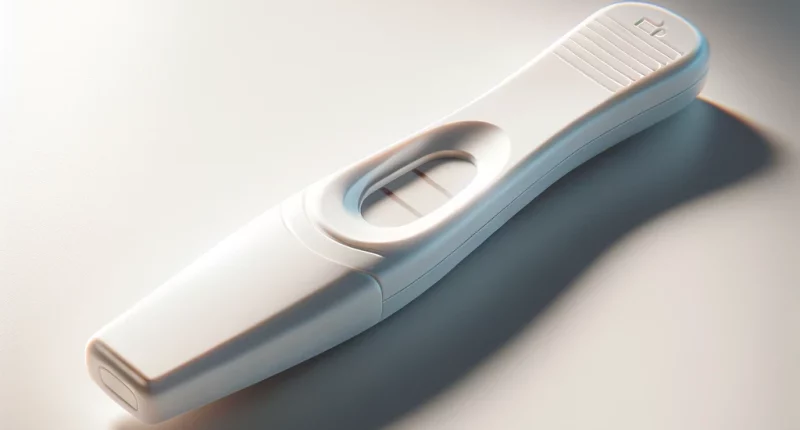Ectopic pregnancy
What is an ectopic pregnancy?
An ectopic pregnancy is an obstetric pathology whose main danger is that the fetal egg is not attached to the uterus but outside it, thus creating a risk of bleeding.
Pregnancy outside the uterus cannot develop as a normal uterine pregnancy; it is usually terminated early and contributes to internal bleeding. This process is very dangerous and requires surgical intervention to save the woman’s life. This condition affects approximately 1-2% of pregnancies and poses significant risks if not diagnosed and treated promptly. This article delves into the causes, risk factors, symptoms, diagnosis, treatment options, and potential complications of ectopic pregnancy, providing vital information for women and healthcare providers.
Understanding Ectopic Pregnancy
An ectopic pregnancy cannot proceed normally. The fertilized egg cannot survive outside the uterus, and the growing tissue may cause life-threatening bleeding if not treated. The condition highlights the importance of early detection and treatment to prevent complications.
Symptoms of ectopic pregnancy
The danger of ectopic pregnancy also lies in the fact that it is difficult to recognize in the early stages. Pregnancy develops in the same way as the usual uterine, and so it can be up to the appearance of bleeding. The main symptoms of pathology:
- delayed menstruation;
- pulling pains in the lower abdomen;
- faint bloody discharge of a dark shade or blood-red color.
It is worth noting that the development of the fetal egg is possible only in the uterus. If it is attached to the fallopian tube, abdominal cavity, or ovary, the fetus cannot develop. As a result, after a while, the placenta will detach, the vessels will rupture. The fallopian tube may also be damaged, resulting in bleeding and further negative consequences, up to the removal of the tube.
In case of sharp pain in the abdominal area, attacks of weakness, and even loss of consciousness is necessary urgent medical assistance is recommended to call an ambulance immediately.
Causes of ectopic pregnancy
Factors that contribute to pregnancy outside the uterus include:
- the presence of inflammatory and tumor processes in the pelvic area, including abortions;
- abnormal structure of the genital organs;
- the use of artificial insemination;
- hormonal imbalance;
- Endometriosis- the appearance of areas of endometrium in an atypical location;
- the presence of pathogenic microbes, infections;
- late puberty.
How do you identify an ectopic pregnancy?
If a pathology is suspected, the first thing to do is to consult a doctor. Diagnosis involves a combination of physical exams, ultrasound imaging, and blood tests to measure human chorionic gonadotropin (hCG) levels. These diagnostic tools help determine the location of the pregnancy and the presence of potential complications.
Treatment for ectopic pregnancy
Treatment of this pathology is possible only surgically. A particular treatment method for ectopic pregnancy is prescribed based on the following factors:
• gestational age;
• the degree of internal bleeding;
• the location of the fetal egg.
If hemodynamics is not impaired, the doctor may prescribe laparoscopic surgery for ectopic pregnancy, which involves puncture of the abdominal cavity, dissection, or removal of the fallopian tube.
The process of cutting the tube, removing the fetal egg, and cauterizing the blood vessels that bleed is called tubotomy.
A severely deformed pipe will not be able to perform its function even after restoration.
In case of severe blood loss and shock, surgery to remove the fallopian tube is prescribed. In this case, the remains of the tube and fetal egg are removed, and the damaged vessels are cauterized or ligated.
All these treatment options are available in more than 700 hospitals worldwide (https://doctor.global/results/diseases/ectopic-pregnancy). For example, salpingectomy can be performed in 25 clinics across Turkey for an approximate price of $2.9 K (https://doctor.global/results/asia/turkey/all-cities/all-specializations/procedures/salpingectomy).
Prevention of ectopic pregnancy
To prevent the appearance of pathology, it is recommended to:
- avoid inflammatory processes in the organs of the urogenital system, as well as timely treatment in case of inflammation;
- use reliable contraceptive methods and avoid unwanted pregnancies and abortions;
- before getting pregnant, get tested to rule out the presence of infections, and if found, treat them;
- in case of acute need to terminate the pregnancy, do it only in early terms and in specialized medical institutions;
- If you have had an ectopic pregnancy, you should undergo a course of recovery and postpone a new pregnancy for the period recommended by the doctor.
Recovery and Aftercare
Recovery from an ectopic pregnancy, both physical and emotional, can take time. Support from healthcare providers, counselors, and support groups can be crucial. Women are advised to wait a few months before trying to conceive again to allow for proper healing and monitoring.
Prevention and Future Pregnancies
While not all ectopic pregnancies can be prevented, reducing risk factors such as smoking and treating any pelvic infections promptly can lower the risk. Future pregnancies will require early monitoring to ensure proper implantation.
Complications
The main complication of an ectopic pregnancy is internal bleeding, which can lead to shock and other life-threatening complications if not treated promptly.
Conclusion
Ectopic pregnancy is a serious condition that requires immediate medical attention. Awareness of the symptoms, along with prompt diagnosis and treatment, can help manage the condition effectively and prevent complications. For women who have experienced an ectopic pregnancy, hope remains for successful pregnancies in the future, with careful monitoring and medical support.



